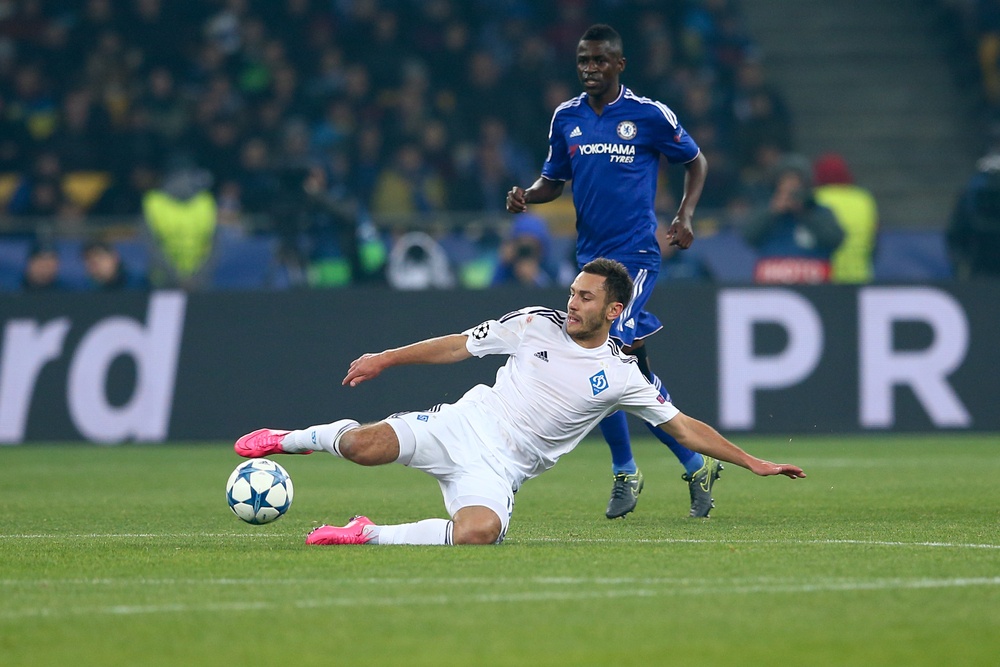
The fundamental skill of playing soccer's midfield is to be able to win the ball. To stop the opposing team from exploiting weaknesses, you need to win the ball. Also, you must maintain a high level of play and possession throughout the game. These are some tips that will help you play in midfield.
Assist the defense
The defense is an important role. You have the ability to stop your opponent scoring if you perform your role well. Keep calm and composed while an attacker is attacking. This will help you avoid losing your energy and producing little to no results. Moreover, the best soccer defenders don't lose focus, even when their team scores. As a soccer professional, you will likely encounter many challenging situations throughout your career.
While playing defense, you should stay in a line with the defense. You don't have to be a playmaker. Instead, focus on your primary duties. Be aware of the positions of your opponents and teammates. Be close to the first defender, but don't get too close to the second attacker. It is essential to control your stance and position at all costs. Your teammates should be able anticipate the ball and allow you to attack.

Scoring opportunities
It's important to provide scoring opportunities for your teammates when playing in midfield. This can be difficult for some players, but it's a crucial part of the game. A well-rounded midfielder can have the ball on each half-turn and will be able find gaps between defenses. They also need to be aware of the movements of their teammates. This will allow them to create scoring opportunities and also give them the ability to find a way into the box.
A good midfielder will be able to create opportunities for his team by making accurate passes to his teammates. An effective midfielder will be able not only to score goals but also help his team by being patient and supportive. Effective midfielders can help create scoring opportunities for his team by communicating and encouraging their teammates. Additionally, a skilled midfielder can act as a coach to his teammates, encouraging them to work harder to score goals.
Keep the ball in your possession
Every player on the soccer pitch must be able keep the ball in their possession. You are a midfielder and you must be able to pass the ball accurately to your teammates. You will score more goals if you pass the ball to your teammates. It will also help spread defense. The role of the go-between is what you have to do, so learning how to make accurate passes is essential.
In a typical soccer game, the players in the midfield are encouraged to support one another and to create numbers-up situations. It's vital to have the ball at your feet at all times, so you can react quickly and regain it. You should practice how to defend the ball against counterattacks as the game progresses. Additionally, you should be able to play in all conditions, including a defensive zone or an attacking zone.

Keep up with the game
Keeping pace with the game is crucial to achieving your goal of advancing through the midfield. Midfielders with the most potential are always in motion, searching for space and creating opportunities. They can see the bigger picture and plan what they will do next. You must have good spatial positioning and be tactically sound. Here are some tips and tricks for playing soccer's midfield.
o Be physically fit: Being able to cover the entire grass on the field is critical when playing in midfield. For defense against attacking sides, midfielders are the first line. Their job is setting up the offense. In addition, they are responsible for passing the ball to open players and setting up other players in the offense. A midfielder with poor fitness will be less likely to score a goal.
FAQ
What is soccer, you ask?
Soccer is an international sport. It involves two teams that play on a rectangular playing field with a goal at either end. The game's objective is to see which team scores the most goals. Rules govern the handling of the ball and who can play it. Although soccer has been around since late 1800s England, it was not recognized until FIFA (Federation Internationale de Football Association), established the first ever world championship in 1930. Over 200 countries now have their own national soccer federations. In 2016, more than 3 billion people played some form of soccer.
What is a corner kicked in soccer?
Corner kicks refer to when the ball goes from one side of the field to the other. These kicks are often taken by players on the wing (or side) of the pitch. The goalie runs towards the penalty box and takes the shot. Corner kicks can be one of the most exciting aspects of soccer, as they provide scoring opportunities.
What does the "A” in soccer mean?
The letter "A", which stands for Association Football is the official title of soccer. Because of the fact that the game was invented in England, Oxford University students were the first to develop it.
What does a defender do in soccer
Defenders typically defend against attackers trying score goals. Defenders defend against attackers trying to score goals by blocking shots and tackling them.
What is a Goal Kick?
A goal kick is when a player crosses the line and places the ball into the net. Goal kicks are also known as "golden opportunities." A long-range shot from just beyond the goal would be an excellent example of a gold opportunity.
Statistics
- the estimated cumulative television audience for the 2006 World Cup in Germany was 26.2 billion, an average of 409 million viewers per match." (en.wikipedia.org)
- At the 2018 FIFA World Cup, Belgium playmaker Eden Hazard, renowned for being difficult to dispossess, set a World Cup record for successful dribbles completed in any World Cup game since 1966, with a 100% success rate in ten dribbles against Brazil.[10] (en.wikipedia.org)
- The word "soccer" is a British invention that British people stopped using only about 30 years ago, according to a new paper by University of Michigan professor Stefan Szymanski. (businessinsider.com)
- From the 1850s onward, industrial workers were increasingly likely to have Saturday afternoons off work, and so many turned to the new game of football to watch or to play. (britannica.com)
- The Laws of the Game do not specify any player positions other than goalkeeper, [74] These positions are further subdivided according to the area of the field in which the player spends the most time. (en.wikipedia.org)
External Links
How To
How to play football
Soccer requires the ability to dribble, pass, shoot, head, tackle, and other skills. These skills should be improved. The most important thing to do is practice them everyday. If you want to learn how to play soccer properly then follow these steps.
-
Practice dribbling. Get comfortable with dribbling. Start practicing dribbling slowly, ideally for 5 minutes each. Once you feel comfortable with dribbling, increase the duration to 10 minutes. Keep practicing this technique daily.
-
Practice passing. Practice passing the ball in front of you and behind you. Pass the ball to the correct person. Don't throw too many passes. It's best to pass the ball directly to the person who needs it. This way you can save energy and keep your body warm.
-
Practice heading. To head, you must place the ball exactly into the net. Before you can achieve this goal, it is important to practice getting in the right position. Place your face in front of the goal line. Then, bend forward slightly so that the ball is under your chin. Next, raise the head and look towards what is in the upper left corner. Look straight ahead with your eyes. Finally, raise your arms and let go of the ball.
-
Practice handling. Tackling, which is the most difficult technique to master, can be very frustrating. This skill can make football more exciting when it is mastered. First, make sure you tackle with your chest to shoulder and not lower. Be sure to keep your arms in line with your body. A small group of two players is the best way to attack. One player acts as a defender and the second is an attacker. The attacker must be tackled as soon the attacker passes the defender.
-
Learn to shoot. Shooting is a skill that is difficult to master and requires a lot practice. Find a place where you can shoot comfortably (e.g. near the goal). Focus on your form. You can hold the ball between your fingers, but keep it away from your body. Bend your knees and point your toes upward. Shoot the ball by making a circular movement with your wrist. You want to hit the bottom right corner.
-
Running is a skill that can be learned. Running is another skill that can take some time to master. Slowly build speed and start slow. Running shouldn't be used to attack, as it will exhaust your muscles. Instead, instead run toward the goal to support your teammates.
-
Practice kicking. Kicking is one of the easiest skills to learn but also one of the toughest. In order to kick accurately, you need to develop strength in your legs and core. You can place your feet together and lift one foot at a stretch. Slowly kick the ball towards your net with only your heels.
-
Re-learn how to dribble. This skill is essential to becoming a great player. Dribbling allows you to control the pace of the game. Dribbling is crucial to controlling the pace and preventing your opponents from catching up or overtaking you. You must be consistent in your dribbling. It is important to not change the way you dribble each day. Stick to what works for you.
-
Do not practice kicks. Free kicks are usually delivered after a foul or when the goalkeeper commits a mistake. Free kicks are a way to score goals and not have to play the match. Practice aiming for the corners of the goal. Keep in mind to use your instep instead of your heel.
-
Practice defending. It all comes down to positioning. Always keep in close proximity to your opponent's player while playing defense. You can block the opponent's path to prevent him scoring if he gets the ball. Always be attentive to your teammates' safety.